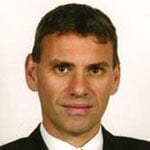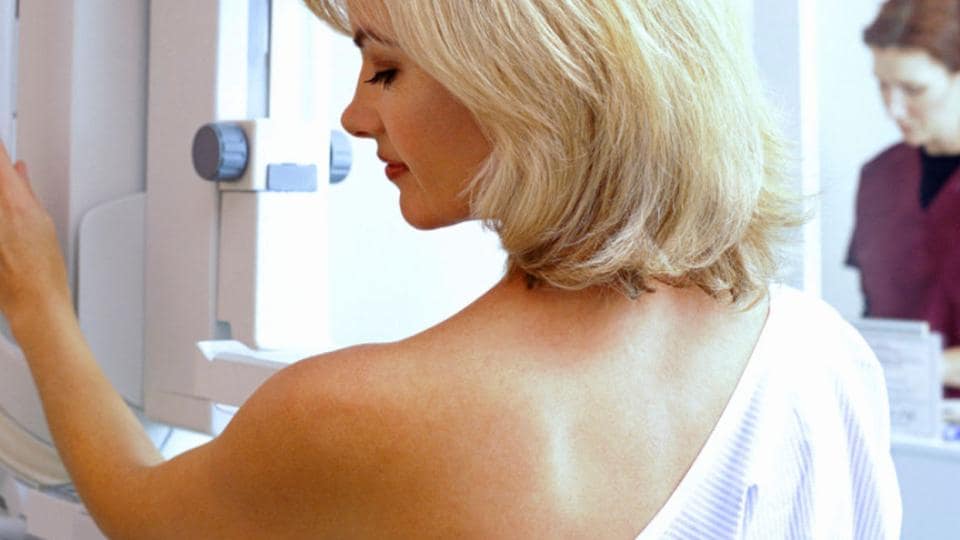Chronic Fatigue Does Not Need to Be a Given

Does prostate cancer make you tired and drained? Many prostate cancer patients ask themselves this question. Extreme exhaustion, also called fatigue, is particularly common in men affected by prostate cancer. Three out of four patients with prostate cancer suffer from these symptoms and feel tired, listless and exhausted. Far too often, they accept these symptoms as a seemingly logical consequence of their disease and the accompanying treatment. We talked to Frank Verholen, Vice President and Head of the Genitourinary Division at Medical Affairs Oncology at Bayer, as to why this should not be the case and what actions can patients take.
Mr. Verholen, what exactly is fatigue - how does it manifest?
Cancer-related fatigue is basically a disproportionate state of exhaustion. Patients suffer from permanent fatigue and listlessness, yet this condition cannot be improved by sufficient sleep and rest and can put a considerable strain on a patient’s life. Even everyday things like showering or getting dressed can be difficult for patients and of course social activities are also affected. Many of the affected patients also have difficulties processing new information or making decisions.
Why does prostate cancer make you tired? What is the cause of this fatigue with this cancer?
There are three main components that contribute to fatigue: The first is the disease itself and its progression. The second is the psychological well-being, which understandably is impacted by a cancer diagnosis and the accompanying fears and worries. It is normal that a reactive depression can occur, although it can vary. Thirdly, the type of therapy plays a role – chemo-therapy, for example, can further negatively impact the functional well-being.
In the case of prostate cancer, a relevant factor is that part of the basic treatment is aimed at lowering testosterone, as this hormone significantly drives the growth of prostate cancer. But testosterone also promotes the production of red blood cells. Now, when men receive hormone treatment for prostate cancer, the lowering of testosterone, often causes anemia, leading to further tiredness and weakness. On top of this basic treatment, other anti-cancer drugs are usually given and some of them can aggravate this fatigue. The exhaustion can considerably impair the quality of life to such an extent that some of the patients discontinue the therapy because of it. However, there are alternatives that usually allow patients to continue their daily lives without being adversely affected by their therapy.
Why do you think patients are more likely to drop out of therapy than to seek help?
Although some of the patients don't feel well, they often consider this condition to be normal. The mindset "I have cancer, I'm getting treatment, of course I'm going to be miserable" is often due to the experience patients have had with relatives of previous generations when modern treatment options were not available. Which means, a certain negative expectation of cancer therapy has already set in. Accordingly, fatigue is often not recognized as a side effect of the treatment and therefore patients do not inform their doctors about it —even though it affects them so much.
To what extent can modern therapies contribute to maintaining the quality of life of prostate cancer patients — what distinguishes them from earlier treatments?
In recent years, progress has been made, particularly in prostate cancer therapy. Nowadays, the treatment can be carried out on an outpatient basis because the medication is usually taken orally, i.e. as tablets or capsules. Hospital visits are only necessary for some of the treatment options or radiological examinations.
In addition, the side effect profile has also improved significantly. The disease can now be treated efficiently without compromising the quality of life of the patient. At Bayer, we conduct research in the field of prostate cancer and have developed drugs for different stages of the disease that aim not only to prolong life but also to maintain quality of life.
What should patients do if they think they are suffering from fatigue?
Those who are not sure whether they are suffering from fatigue should compare their current condition with their condition before treatment: Fatigue as a side effect of therapy is likely when patients suddenly feel less dynamic and energetic than before treatment. Prostate cancer is a slow-progressing disease, so it is unlikely that you will feel weaker only because of the disease after your appointment with the doctor or when you start treatment.
Relatives and other caregivers can also provide support here. They should be attentive and actively approach the patient about changes. "You used to do this or that - why don't you do that anymore?" This may make it clearer to the patient that there is a need for action.
In any case, patients should definitely talk to their doctor if they suffer from exhaustion – no matter how pronounced it is. The doctor must know that the patient is not doing well with the treatment – only then can he/she look for suitable therapy alternatives.
Is there anything that can be done about fatigue in prostate cancer?
Yes, even if it is difficult to get up when you have fatigue: regular exercise is very important. A balanced diet also has a positive influence.
Along with the patients, their caregivers should also be well informed about the disease and treatment options. With this knowledge, it is much easier for patients to describe their condition to their doctor and discuss possible treatment alternatives that best suit their needs and life situation.
To help patients better understand their disease states, we at Bayer have started to prepare scientific content in a way that is understandable to lay people. For example, we have started to publish information about new registrational studies in an easy-to-understand language. We also provide patient literature in which patients who have themselves participated in a study report on their experiences. Importantly, many patient organizations also provide helpful information.
Is there anything else you would like to tell the patients?
Yes: I would like to emphasize that the patient plays a big role in finding the best possible therapy for themselves. They should know how important it is that they really listen to them-selves and that the greatest treasure of knowledge lies with them! Only if they share their complaints and needs with the doctor, he/she can make the best possible therapeutic decision.
Prostate cancer nowadays is very well treatable for a long time. And it is no longer just a matter of prolonging life — with modern therapies, quality of life can also be maintained.

About Frank Verholen
As an experienced physician, Dr. Frank Verholen also knows the daily routine in the clinic and can combine the great wealth of knowledge of medical practice with the pharmacological innovations, e.g. from Bayer. Frank Verholen studied medicine at the Ruhr University in Bo-chum and completed his doctorate there. He then worked for more than 10 years at the Uni-versity Hospitals of Geneva, where he acquired his knowledge for training as a specialist in internal medicine as well as a specialist in hematology. Dr. Verholen initially worked in various positions in the pharmaceutical industry in Switzerland and Germany, as well on a European level, before he took on the global medical responsibility at Bayer for radium-223 in 2016. For several years, he has headed the medical department for the urogenital division, including prostate cancer, in the Bayer Oncology Business Unit.
About Prostate Cancer at Bayer
Bayer is committed to delivering science for a better life by advancing a portfolio of innovative treatments. The company has the passion and determination to develop new medicines that help improve and extend the lives of people living with cancer. Prostate cancer is the second most commonly diagnosed cancer in men and a key area of focus for Bayer. The company’s franchise includes two products on the market and several compounds in development. Bayer is focused on addressing the unique medical needs of prostate cancer patients, providing treatments that extend their lives throughout the different stages of the disease and allowing them to continue their everyday activities, so that they can live both longer and better lives.




















